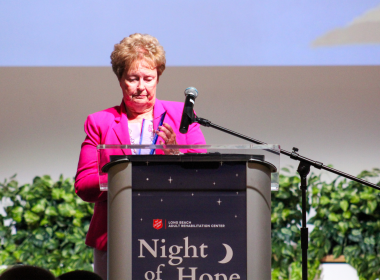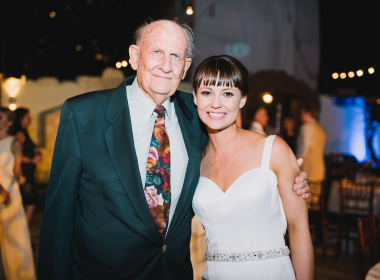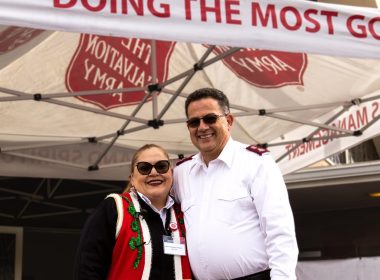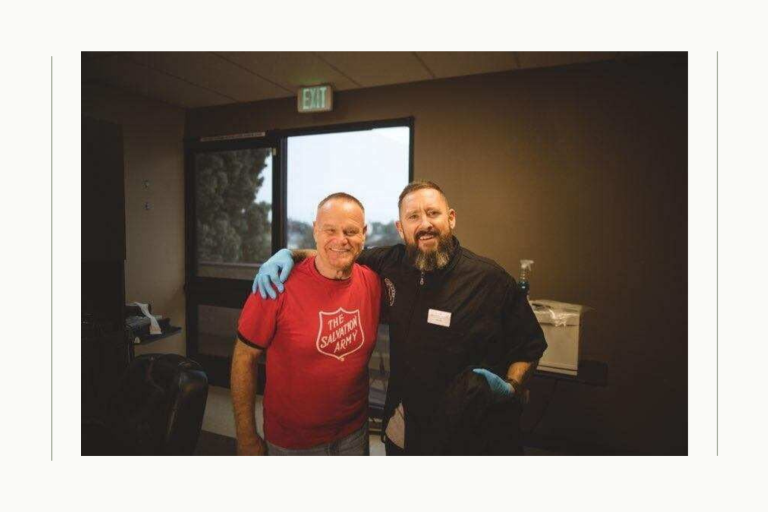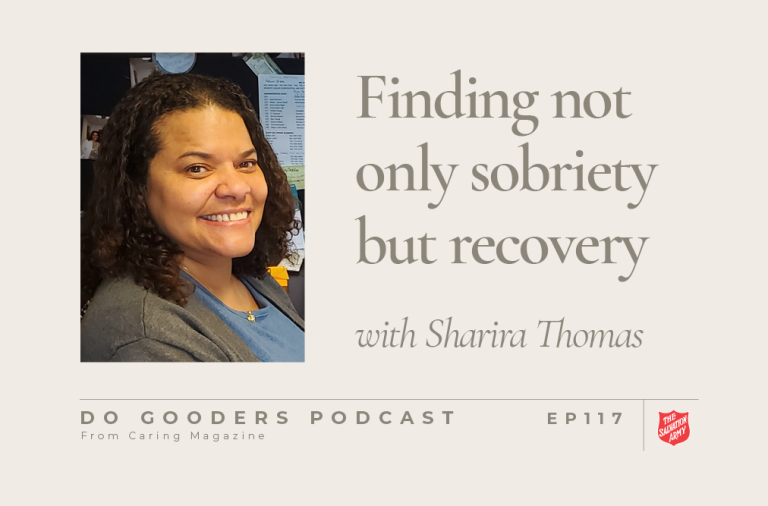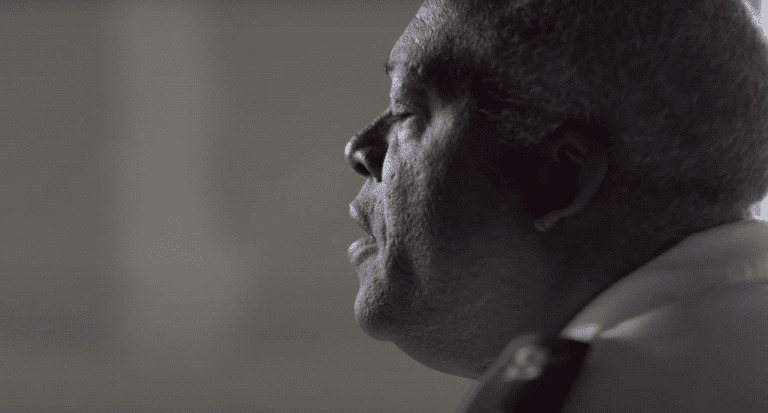Support rehabilitation and spread hope.
More than 47 million people ages 12 or older have a substance use disorder.
That’s 17 percent of people in the U.S.—including 28.9 million with an alcohol use disorder, 27.2 million with a drug use disorder and 7.5 million people with both.
That’s why The Salvation Army has more residential rehabilitation facilities than any rehab program in America.
For over 100 years, The Salvation Army’s rehabilitation programs have served as beacons of hope to those most in need. The Adult Rehabilitation Centers are examples of The Salvation Army’s commitment to meeting human need in Jesus’s name without discrimination by helping individuals at the most difficult times in their lives to gain, or regain, their dignity and independence.
Give the gift of transformation.
As the only provider of social services in nearly every zip code across the U.S., The Salvation Army uniquely understands that the statistics on those struggling with substance use don’t provide a full picture of need—and it’s not limited to a certain “type” of person.
Need can affect anyone.
Your donation will provide hope and transformation to someone nearby in need.
That’s why The Salvation Army equips more than 100,000 people every year to combat substance use, regain health and stability, build work and social skills, and restore families—and we’ve been at it since 1865.
With 122 residential treatment facilities in America, The Salvation Army is providing assistance to individuals who are experiencing a variety of social, emotional and spiritual challenges, including issues relating to substance abuse.
Your gift will help The Salvation Army transform a life.
Your donation will provide hope and transformation to someone nearby in need.
Will you join us in Doing Good?
Here’s how it works:
1.
Decide to join The Salvation Army in supporting rehabilitation.
2.
Give to help provide hope and transformation to someone nearby in need.
3.
Know you’re helping restore a family in your neighborhood.
Yes, you could keep “do good” on your to-do list. You could set a resolution to help others this year.
Or, you can decide to choose love today.
Fill the you-sized hole for goodness. Give to support rehabilitation in your community today.
Our Promise to Donors Like You
The Salvation Army is dedicated to Doing the Most Good, assisting more than 27 million Americans annually with food, shelter, rehabilitation, disaster relief, child protection and more.
By meeting tangible needs, we give the world a lasting display of the love behind our beliefs. Since 1865, we have been working to provide sustainable solutions for the most vulnerable. We stay not just until the job is done, but long afterward to ensure the healing continues.
With 82 cents of every dollar dedicated to directly supporting the needs of the community in which it was received, The Salvation Army is committed to stewarding every donation with integrity.

“I’ve never met a group of such selfless people that are working to help others. The Army’s goal is to take people in and rehabilitate them so they can have a life and be able to take care of themselves. And that’s something that’s really important to me.”
– Diane Mullin, Donor, Pasadena, California
Rocky’s Story
“I started drinking, playing around with pot and doing meth in high school. It was just a weekend thing. Later on, it became a need. Selling “ice,” doing ice was my life.
When my children were taken away, it opened my eyes.
I did the 911 prayer: Lord, help me out of this and I’ll change.
And He heard.
I became a participant at The Salvation Army Adult Rehabilitation Center—where I lived cost-free, engaged in the 12 steps and fought my addictions.
It changed my life.
I’m so grateful they gave me one more chance.”
— Rocky
Captain Timothy’s Story
Conquering addiction is a miracle in itself.
And I would know.
Thirteen years ago, I was a participant at The Salvation Army Adult Rehabilitation Center—where I lived cost-free, engaged in the 12 steps and fought my addictions. Today, I’m an officer (a pastor) in The Salvation Army, currently leading the Adult Rehabilitation Center in Santa Monica, California.
I see it every day—people turning to chemicals to find their self worth. Addiction is at an epidemic proportion.
We try to give them a new way of looking at life, with skills to live a new life—especially getting connected to a supportive community. Then on graduation day, I always say: You’re at a new starting line now.”
— Captain Timothy Pemberton
Hear Timothy share his story on the Do Gooders Podcast here.
Looking for more ways to help?
Curious what cause best fits your personality? Take our quiz and discover where you can make the biggest impact for good.

